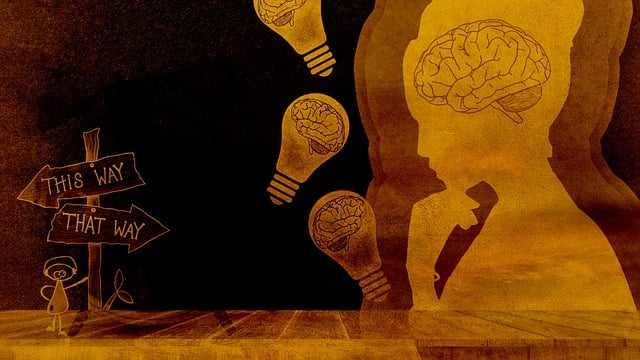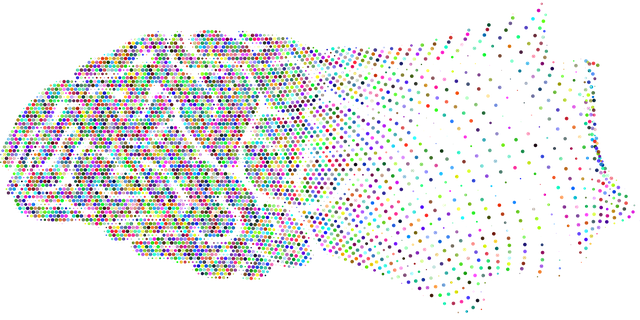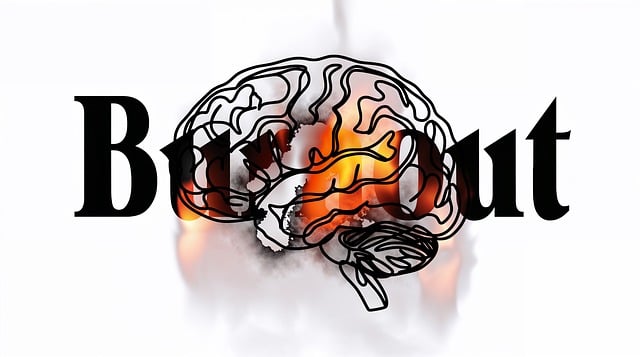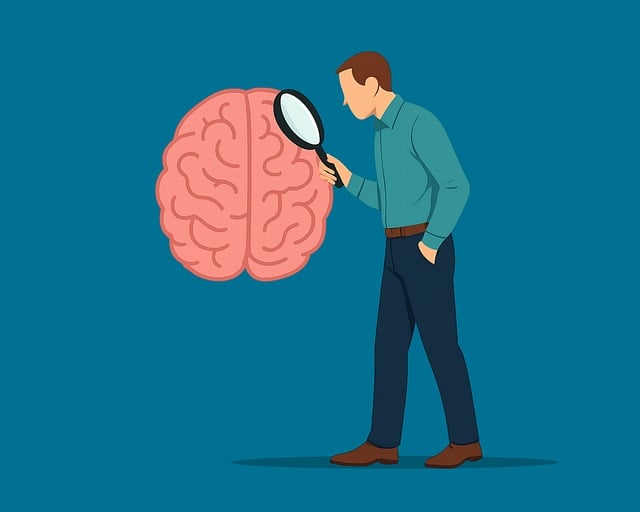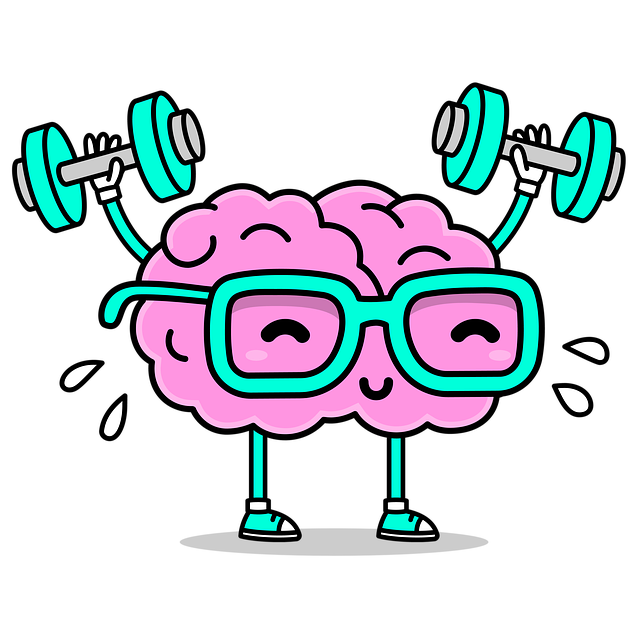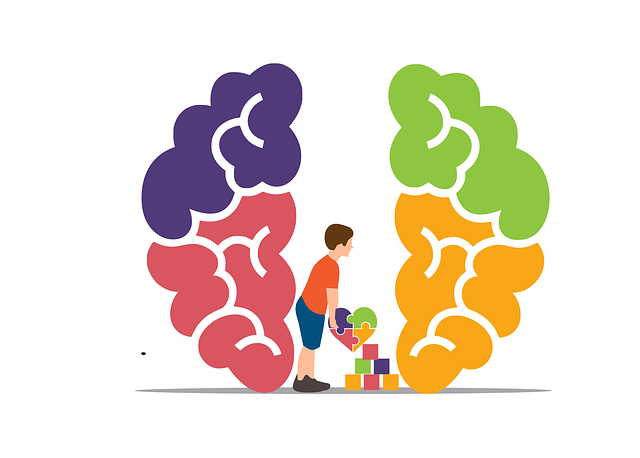Emotional intelligence (EI), a core element of Denver psychosis therapy, bridges cognitive understanding and emotional experience, fostering strong relationships, effective communication, and positive social interactions crucial for mental well-being. Building EI starts with self-awareness and active listening, enhanced by cultural sensitivity and public awareness campaigns. Journaling exercises and stress reduction methods further develop EI, promoting resilience and transforming responses to stress and anxiety. Denver psychosis therapy techniques help individuals identify emotional triggers, enabling proactive measures for maintaining equilibrium and adapting to challenges gracefully, ultimately elevating mental health and quality of life.
Emotional intelligence (EI) is a game-changer in both personal and professional spheres. In Denver psychosis therapy and beyond, cultivating EI enhances communication, fosters strong relationships, and promotes mental well-being. This article explores key components of EI development. We’ll delve into understanding self-awareness as the foundation for emotional regulation, enhancing empathy to recognize and respond to others’ emotions, mastering active listening, and practical skills for managing one’s own emotions effectively.
- Understanding Emotional Intelligence: The Key to Effective Communication and Relationships
- The Role of Self-Awareness in Building Emotional Intelligence
- Enhancing Empathy: Recognizing and Responding to Others' Emotions
- Practicing Active Listening: A Cornerstone of Emotional Intelligence
- Cultivating Emotional Regulation Skills for Better Mental Well-being
Understanding Emotional Intelligence: The Key to Effective Communication and Relationships

Emotional intelligence (EI) is a powerful tool that enables individuals to understand and manage their own emotions, as well as recognize, empathize, and influence the emotions of others. This complex interplay is the key to building strong relationships, effective communication, and positive social interactions—all of which are essential for mental well-being. In the context of Denver psychosis therapy, EI acts as a bridge between cognitive understanding and emotional experience, helping individuals navigate their feelings in a healthy manner.
Developing emotional intelligence involves learning how to accurately perceive emotions, both within oneself and others. It also entails managing one’s own emotional responses and using this awareness to enhance social interactions. For mental health professionals, mastering EI is not just beneficial for personal growth; it significantly enhances their ability to support clients during therapy sessions, fostering a deeper connection and understanding. This skill set is integral to effective risk management planning, as it enables professionals to anticipate and navigate emotional crises more effectively, contributing to improved mental health policy analysis and advocacy.
The Role of Self-Awareness in Building Emotional Intelligence

Emotional intelligence building starts with a foundational element: self-awareness. Understanding your emotions and the impact they have on your thoughts and actions is crucial for developing empathy and managing relationships effectively. This involves recognizing both your strengths and weaknesses, as well as the patterns that emerge in how you respond to different situations. Denver psychosis therapy emphasizes this aspect, helping individuals navigate their internal landscape and gain a deeper understanding of themselves.
Cultural sensitivity in mental healthcare practice plays a significant role in fostering self-awareness, particularly when considering the diverse backgrounds and experiences of those seeking support. Public awareness campaigns development and community outreach program implementation can also enhance self-awareness by educating people on emotional intelligence and its benefits. By increasing public awareness, these initiatives contribute to a more supportive and inclusive environment where individuals feel empowered to explore and improve their emotional intelligence.
Enhancing Empathy: Recognizing and Responding to Others' Emotions

Enhancing empathy involves recognizing and responding to others’ emotions, a crucial aspect of emotional intelligence building. It starts with active listening, where individuals focus on understanding another’s perspective and feelings without judgment. This simple act allows us to pick up on subtle cues—a tone of voice, a facial expression—that reveal what someone is truly experiencing. By acknowledging these signals, we demonstrate empathy, fostering a deeper connection and strengthening interpersonal relationships.
In the context of Denver psychosis therapy or mental health education programs design, learning to empathize effectively is a powerful tool for emotional healing processes. It encourages individuals to step outside their own experiences and perspectives, cultivating an understanding and compassion for others’ struggles. This ability to connect on an emotional level can transform interactions, leading to more supportive environments and stronger bonds within communities.
Practicing Active Listening: A Cornerstone of Emotional Intelligence

Emotional intelligence building begins with cultivating fundamental skills like active listening, which serves as a cornerstone in Denver psychosis therapy. When engaging in conversation, truly focusing on what the speaker is saying, both verbally and nonverbally, demonstrates empathy and respect. It involves giving your undivided attention, asking clarifying questions, and reflecting back what you’ve understood to ensure accuracy and foster deeper understanding. This practice not only strengthens relationships but also enhances social skills training, promoting more meaningful interactions in various aspects of life.
By incorporating mental wellness journaling exercises guidance into your routine, individuals can further develop their emotional intelligence. Taking time to reflect on experiences, emotions, and thoughts allows for self-awareness to deepen, enabling better recognition and management of feelings. Additionally, stress reduction methods play a crucial role in emotional intelligence building by teaching individuals how to manage difficult emotions and maintain a balanced mental state. These practices collectively contribute to a healthier mind, fostering resilience and effective communication skills essential for personal growth and improved relationships.
Cultivating Emotional Regulation Skills for Better Mental Well-being

Cultivating Emotional Regulation Skills is a cornerstone of enhancing mental well-being, as highlighted by Denver Psychosis Therapy experts. This involves learning to identify and manage one’s emotions effectively. By developing coping skills, individuals can transform their emotional responses, leading to better resilience against stress and anxiety relief. Through various therapeutic techniques, one can gain proficiency in understanding their emotional triggers, allowing for proactive measures to maintain a sense of equilibrium.
Emotional Intelligence plays a pivotal role here, as it equips individuals with the ability to recognize not only their own emotions but also those of others. This empathy fosters healthier relationships and enhances social interactions. The goal is to create a harmonious balance where one can express emotions constructively, regulate intense feelings, and adapt to challenging situations with grace, thereby improving overall mental health and quality of life.
Emotional intelligence is a powerful tool for personal growth and fostering meaningful connections. By understanding and cultivating skills in self-awareness, empathy, active listening, and emotional regulation, individuals can significantly enhance their communication and relationships, leading to improved mental well-being. Denver psychosis therapy emphasizes these principles, offering strategies to navigate complex emotions and build stronger, more fulfilling relationships. Through practical application of these techniques, one can transform challenges into opportunities for personal development and enhanced social interactions.

